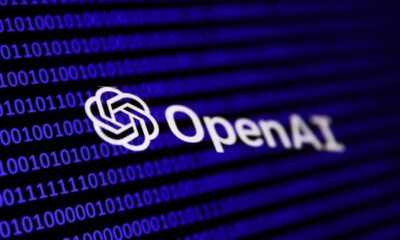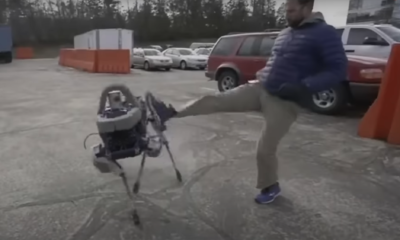Tech News
Researchers say AI fails to describe complexities of Holocaust

Current artificial intelligence (AI) models accessible in the public domain are criticized for their failure to capture the “complexities and nuances of the past,” providing instead oversimplified narratives of the Holocaust, as reported by an international Holocaust research lab.
In November 2024, the University of Sussex introduced the Landecker Digital Memory Lab, aiming to “secure a sustainable future for Holocaust memory and education in the digital era.”
As outlined in a research-based policy briefing presented to the International Holocaust Remembrance Alliance (IHRA) titled Does AI have a place in the future of Holocaust memory, the utilization of AI in Holocaust memory and education poses challenges due to the lack of substantial data on the Holocaust within mainstream models, including generative AI systems like ChatGPT and Gemini, necessitating input from experts in the field for accurate representation.
The lead investigator at the lab, Victoria Grace Richardson-Walden, has urged all stakeholders in Holocaust memory and education, as well as policymakers, to address this issue by prioritizing the digitization of their data and expertise, emphasizing the importance of moving beyond physical sites and museums.
“A majority of organizations in the Holocaust memory and education sector lack a clear digitization strategy,” Richardson-Walden noted, referring to archives, museums, memorial sites, and libraries worldwide. “They often digitize materials and testimonies solely for specific exhibitions, neglecting a comprehensive approach.”
She emphasized the urgency of the matter, particularly in light of ongoing conflicts in regions such as Ukraine and the Middle East, where historical heritage is at risk of being exploited for political motives, leading to a loss of nuance and complexity.
Challenges with AI Systems
Richardson-Walden pointed out that GenAI systems operate as “knowledge machines,” assigning probabilistic values to words and phrases without considering their cultural and historical significance, resulting in the overshadowing of lesser-known facts and narratives in favor of well-known, often sensationalized stories.
She highlighted the limitations of systems like ChatGPT in summarizing the intricate histories of events like the Holocaust, noting that attempts to condense complex events spanning multiple years and locations into brief summaries are inherently problematic.
While the research does not offer definitive solutions to these challenges, Richardson-Walden is exploring alternative approaches in collaboration with informatics and engineering experts to address the difficulty of encoding cultural nuances into AI training data.
The lab’s policy briefing also raised concerns about the inadequate data present in commercial GenAI models, particularly when dealing with sensitive historical subjects such as genocide and conflict, underlining the importance of accurate and standardized metadata in digitized Holocaust materials.
Another issue highlighted in the briefing is the self-censorship embedded in many commercial image GenAI models, which often refuse to generate images related to the Holocaust, leading to limitations in visual representations of historical events.
Richardson-Walden emphasized the need for a balanced approach in implementing censorship guidelines within AI programming that prevents misinformation without erasing crucial historical narratives, advocating for open dialogue among tech companies, academic institutions, and Holocaust memory experts to navigate these complexities.
The Landecker lab’s website references the USC Shoah Foundation’s Dimensions in Testimony AI model as a notable example of Holocaust memory digitization, showcasing a domain-specific GenAI model that incorporates human input to provide interactive testimonies from survivors and experts.
However, not all organizations have the resources to develop such specialized models, underscoring the importance of widespread digitization efforts to support responsible utilization of AI in preserving Holocaust memory.
-

 Destination8 months ago
Destination8 months agoSingapore Airlines CEO set to join board of Air India, BA News, BA
-

 Breaking News10 months ago
Breaking News10 months agoCroatia to reintroduce compulsory military draft as regional tensions soar
-

 Gadgets3 months ago
Gadgets3 months agoSupernatural Season 16 Revival News, Cast, Plot and Release Date
-

 Tech News12 months ago
Tech News12 months agoBangladeshi police agents accused of selling citizens’ personal information on Telegram
-

 Productivity11 months ago
Productivity11 months agoHow Your Contact Center Can Become A Customer Engagement Center
-

 Gadgets3 weeks ago
Gadgets3 weeks agoFallout Season 2 Potential Release Date, Cast, Plot and News
-

 Breaking News10 months ago
Breaking News10 months agoBangladesh crisis: Refaat Ahmed sworn in as Bangladesh’s new chief justice
-

 Toys12 months ago
Toys12 months ago15 of the Best Trike & Tricycles Mums Recommend























